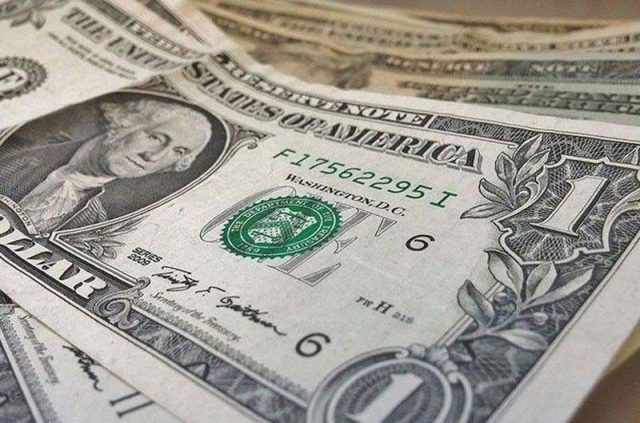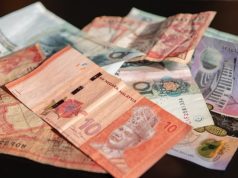- Taiwan shares hit highest level since late July
- South Korean shares reach six-week high
- Philippine shares down 0.7%
South Korean and Taiwanese stocks rose on Tuesday, led by chip and technology shares, while currencies in Asia held largely steady as market participants considered if U.S. President-elect Donald Trump could be less aggressive than expected on tariffs.
Taiwanese equities <.TWII> gained as much as 1.7% to reach their highest in nearly six months. Semiconductor giant TSMC <2330.TW> climbed 3.1% as chip stocks got a boost after Nvidia hit a record high overnight and Microsoft announced plans to invest $80 billion in data centres.
South Korea’s KOSPI index <.KS11> rose as much as 1.3% to hit its highest since Nov. 27.
South Korean financial markets were the worst performers in Asia last year as the government’s efforts to boost the market were overshadowed by signs of a slowdown in exports and domestic political turmoil.
However, the won <KRW=KFTC>, which was up 0.4% for the day, and the stock market have started 2025 on a positive note.
“KOSPI has kept up with its near-term bullish momentum, and while political risks persist, the initial reaction has subsided, with room for more policy support to uplift consumer and business confidence ahead offering the basis for some dip-buying,” IG analysts said in a note.
Elsewhere in the region, stocks in Bangkok <.SETI>, Mumbai <.NSEI> and Kuala Lumpur <.KLSE> rose between 0.2% and 1%.
Bucking the trend, shares in Manila <.PSI> lost 0.7%. Data showed that annual inflation quickened for a third straight month in December, with the central bank saying it would maintain a “measured approach” to monetary policy easing.
READ: Philippine annual inflation at 2.9% in December
Currencies in the region were largely steady. The Indian rupee <INR=IN>, the Malaysian ringgit <MYR=>, and the Indonesian rupiah <IDR=> inched between 0.1% and 0.2% higher.
The U.S. dollar hovered near a one-week low, after Trump denied a media report that his incoming administration would likely pursue a less-aggressive tariff policy than he previously threatened.
The markets usually respond in a pattern leading to volatility from hopes and fears over Trump’s policies, DBS analysts said.
“Markets would briefly respond positively to prospects of moderation in Trump’s unpredictable and polarising policies. However, markets would also quickly adjust when Trump reinforced tariffs as central to his ‘America First’ agenda,” they said.
The Chinese yuan <CNY=CFXS> lingered near a 16-month low.
Elsewhere, the Mexican peso <MXN=> closed up 1.5% on Monday.
The yuan and the peso are seen as most vulnerable to a stronger dollar and heavier tariffs under Trump.
HIGHLIGHTS:
** Indonesia joins BRICS bloc as full member, Brazil says
** US adds Tencent, CATL to list of Chinese firms allegedly aiding Beijing’s military
** Trudeau to resign as prime minister after nine years, blames party infighting
| Asian stocks and currencies at 0453 GMT | ||||||
| COUNTRY | FX RIC | FX DAILY % | FX YTD % | INDEX | STOCKS DAILY % | STOCKS YTD % |
| Japan | <JPY=> | -0.28 | -0.54 | <.N225> | 2.36 | 0.86 |
| China | <CNY=CFXS> | -0.01 | -0.39 | <.SSEC> | -0.32 | -4.62 |
| India | <INR=IN> | +0.19 | -0.06 | <.NSEI> | 0.20 | 0.08 |
| Indonesia | <IDR=> | +0.19 | -0.43 | <.JKSE> | 0.05 | 0.06 |
| Malaysia | <MYR=> | +0.09 | -0.80 | <.KLSE> | 0.46 | -0.57 |
| Philippines | <PHP=> | +0.00 | +0.08 | <.PSI> | -0.67 | 0.80 |
| S.Korea | <KRW=KFTC> | +0.62 | +1.47 | <.KS11> | 0.32 | 4.05 |
| Singapore | <SGD=> | -0.05 | +0.09 | <.STI> | 0.20 | 1.11 |
| Taiwan | <TWD=TP> | +0.38 | +0.13 | <.TWII> | 0.87 | 3.11 |
| Thailand | <THB=TH> | +0.19 | -0.71 | <.SETI> | 0.97 | -1.01 |










